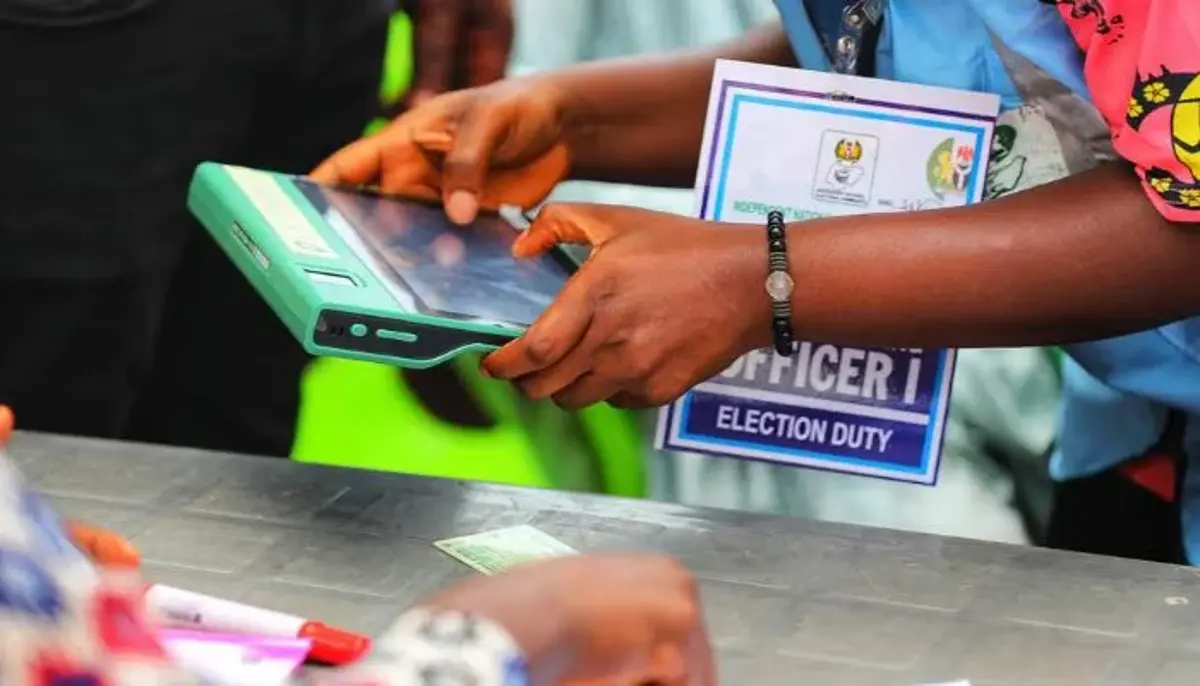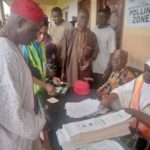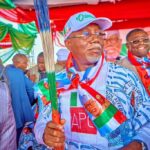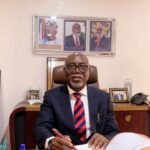Tongues are still wagging over the outcome of the February 25 presidential and National House of Assembly elections.
Bola Ahmed Tinubu, the candidate of the All Progressives Congress (APC) was declared president-elect for his victory in the presidential poll.
Tinubu secured 8,794,726 votes while Atiku Abubakar of the Peoples Democratic Party (PDP) had the second-highest figure with 6,984,52 and Peter Obi of the Labour Party (LP) polled 6,101,533 votes.
Prof. Mahmood Yakubu, Chairman of the Independent National Electoral Commission (INEC), declared Tinubu the winner at exactly 4.10am in Abuja.
#NigeriaDecides2023: Heavyweights that will determine Ogun governorship Poll
#NigeriaDecides2023: How Ganduje, Kwankwaso, others will shape Kano guber poll
However, the exercise suffered some glitches, which were cited as some of the reasons the opposition parties and their candidates, Atiku and Obi, were contest the outcome of the poll in court.
Some electoral observers and monitors have also highlighted some of these issues. As Nigerians go to polls tomorrow to elect new governors in 28 states and state houses of assembly members across the 36 states of the federation, all eyes will be on INEC again.
The electorate, observers and analysts look forward to finding out how the commission has been able to fix those challenges in the past three weeks.
Daily Trust examines some of those issues that will bring INEC on the spot light in less than 24 hours.
BVAS malfunctioning
In some polling units, the Bimodal Voter Accreditation System (BVAS) machine malfunctioned. In River State, voters in some polling units especially those around Wimpey Junction, Rumuepirikom, Port Harcourt, lamented as the BVAS failed to accredit them.
The state Governor Nyesom Wike was not also accredited as a result of the failure of the BVAS network. As of 11:48am, several voters had yet to be accredited.
Delayed commencement of voting
There was delay in the commencement of voting as a result of the late arrival of INEC officials. Incomplete set up of polling units were also widely observed. In some polling units, the officials arrived without either stamps or ballot papers leading to prolonged waiting by voters and late commencement of voting.
Late arrival of election materials
For instance, in Borno State, late arrival of election materials were recorded in most polling units in the Maiduguri metropolis.
As of 11:25am, voting materials had yet to arrive at the polling unit of the APC vice presidential candidate, Kashim Shettima, in Shettima Kukawa PU 023 at Lawan Bukhari.
Shettima, who had arrived around past 10am to cast his vote, left some minutes later without making any comment.
IReV
The IReV portal was part of the technologies introduced by the commission to improve the transparency of the electoral process.
The commission had previously assured Nigerians that polling unit results would be uploaded to the portal in real-time during the presidential election.
The portal was, however, inactive for a long time, even after voting had ended in some polling units and several days after, not all the results had been uploaded.
Speaking on Sunday when he featured on Channels Television’s ‘Sunday Politics’, Festus Okoye, INEC national commissioner, acknowledged that there were challenges with the portal on the election day.
He said necessary adjustments had been made to the portal to ensure optimal function during the governorship and state assembly polls on March 18.
“There is no technology that does not have challenges. Yes, we promised that results will be uploaded in real time to our result viewing portal, but there were challenges. We already explained to Nigerians that these glitches happen, we didn’t anticipate that we’re going to have these challenges,” he said.

 Join Daily Trust WhatsApp Community For Quick Access To News and Happenings Around You.
Join Daily Trust WhatsApp Community For Quick Access To News and Happenings Around You.

